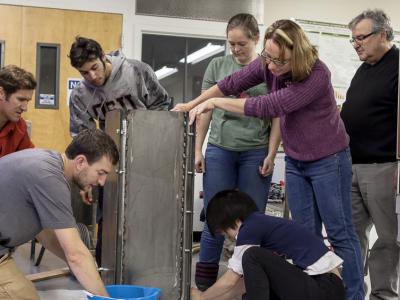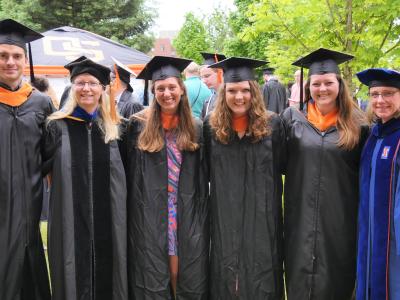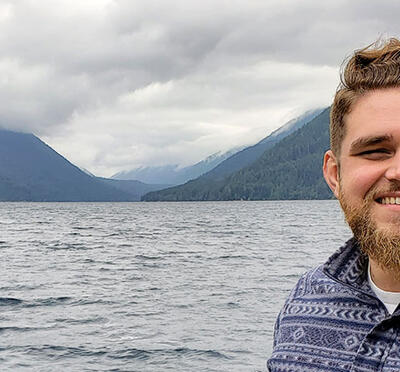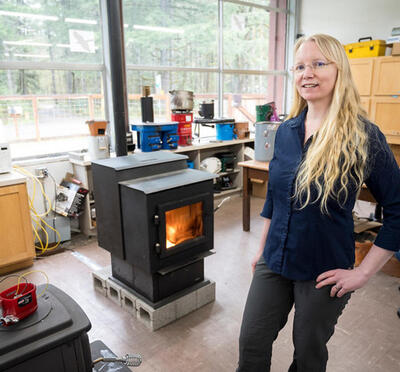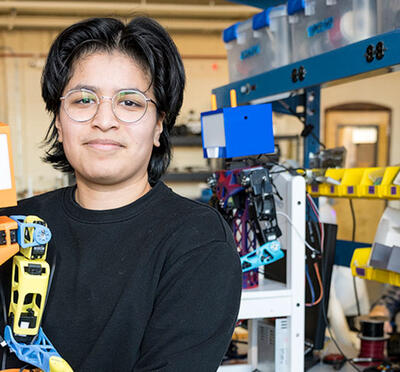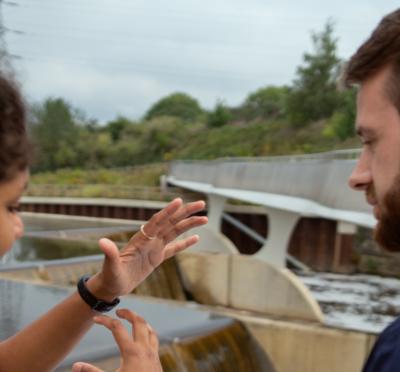
Humanitarian Engineering
Engineering in context
Our mission is to cultivate science and engineering-based solutions to provide access to basic human needs, enhance life quality, and advance resilience in local and global communities.
The humanitarian engineering program at Oregon State University focuses on education, service learning models, and research.
Check out our blog to hear from students in their own words and follow us on Facebook for the latest news.
Our program's impact (2015-2020)
-
850 student-days of research, coursework or project work in developing countries
-
58+ students supported in international travel
-
28 graduate fellowships awarded to students from 14+ different faculty advisors (sponsoring travel to 15 different countries)
-
14 student participants in international conferences
-
2,200+ students reached through presentations about humanitarian engineering
-
1,200+ people reached through presentations for public, alumni
-
12 international-themed graduate research topics studied
-
3 Peace Corps Master’s International Students mentored
-
16 international senior capstone project teams mentored
-
9 faculty teaching/co-teaching a humanitarian engineering, science and technology (HEST) course
-
8 HEST courses (201, 310, 320, 411/511, 412/512, 241/541, 242/542, 444/544)
-
2 Engineers Without Borders projects mentored as faculty co-adviser
-
4 interdisciplinary/dual graduate degrees awarded
-
12+ international partner NGOs
-
3 international social enterprise partners
-
25+ funded international visiting exchange scholars at OSU (graduate students)
-
~70% women and underrepresented engineering students in HEST courses, projects, and fellowship programs
About our work
Oregon State students are, increasingly, seeking ways to make a lasting, positive impact on the world. In response, a diverse group of faculty from Engineering, Liberal Arts, Public Health, and Forestry came together to launch the humanitarian engineering program.
We define humanitarian engineering as the co-development of science or engineering-based solutions to improve the human condition, namely through improved access to basic human needs (e.g., clean water, clean energy), an improved quality of life, or improved level of community resilience (e.g. disaster mitigation, economic resilience).
Our program is consciously both global and local in orientation. While the greatest needs are found in the developing world, we recognize that needs exist within Oregon and the rest of the U.S., too. The importance of co-developing solutions, through active community engagement with sensitivity to context, is critical in any setting.
Oregon State's tradition of interdisciplinary research and education and its campus ethos of engaged service empowers students to participate in solving global development problems. Student organizations, such as our award-winning Engineers Without Borders chapter, are already working on water, energy, or other projects in the developing world.
Our faculty have been working in international development or humanitarian engineering settings for many years, and now these efforts are becoming well-coordinated across campus. Recently expanded opportunities to engage meaningfully in service to local and global communities have struck a chord with students and faculty.
Please see the undergraduate or graduate programming page for more details on opportunities for students, and view our upcoming courses. Students from any major and at any level are welcome to join us!
Please contact Nordica MacCarty with any questions about our program.
